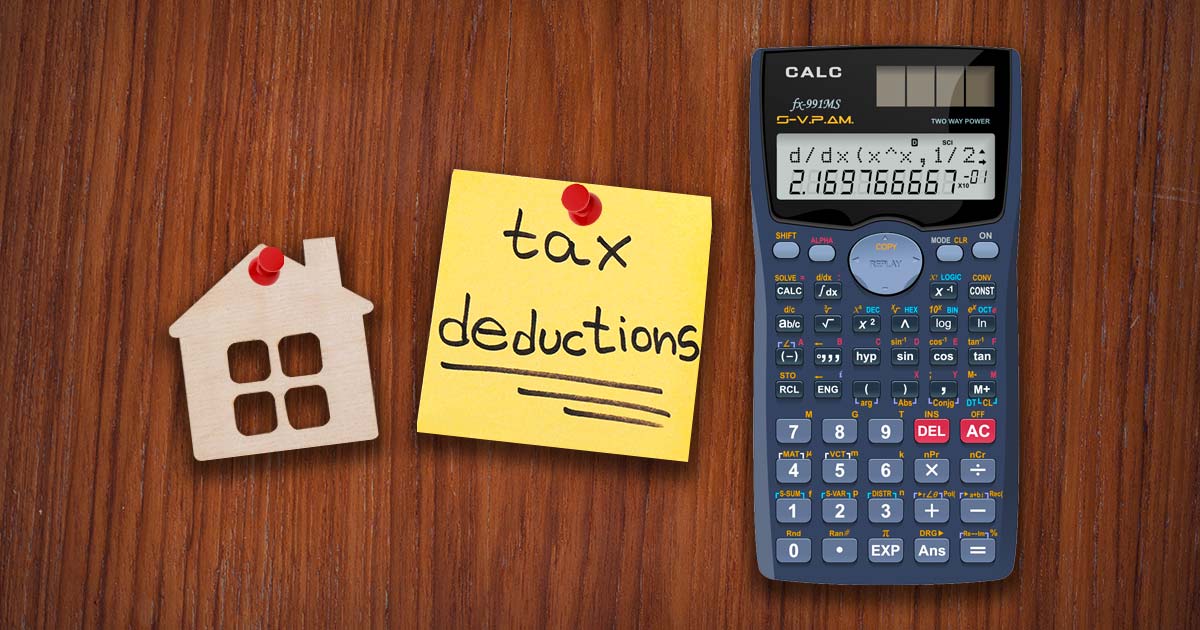Tax Deductions for Owners of Rental Properties

Being a landlord can be very rewarding, however it can also be difficult and expensive. Tax season is a confusing time with insurance, real estate taxes, and mortgages to juggle. But if you own rental property or are thinking about it there are many tax breaks that you should know about.
Mortgage Interest
Interest on your mortgage loan is one of the largest expenses that landlords can deduct. The interest is deductible even if the part of your payment that covers the principal amount of the loan cannot be deducted.
As shown on your monthly statements, finding the annual interest is as simple as multiplying by 12.
Repairs and Maintenance
Keeping up with repairs and maintenance on a rental property is crucial for a landlord. These costs are tax-deductible if they’re used to bring the property back to its pre-damage condition including labour cost. It’s important not to deduct repair expenses in an attempt to increase the market value of the property.
If you’re able to fix problems with property yourself then you can claim rental fees for tools or equipment needed for repairs but not labor costs.
Property Taxes
Each state has different rules and rates when it comes to property taxes so it’s important that you speak with tax professional who knows your area well about what deductions may apply for this category too! You may be able to write off sales tax related expenses like occupancy tax or rental license requirements applicable only within certain states where such stuff exists at all; State level income sales property taxes have an irs imposed cap on how much can be deducted but usually business related activities are exempt from such caps hence allowing complete deduction as business expense.
Utilities
If landlords pay utility bills instead of renters, agreements between landlords and tenants over who pays which utilities could qualify them for some tax breaks. A landlord might be able deduct gas bills water electricity heating AC cable internet etcetera used by tenant(s). These costs can still be deducted from taxes even if the renter pays back landlord for them afterwards.
Insurance and Depreciation
You can deduct many insurance premiums for your rental property such as theft fire flood landlord liability. Also, you are allowed to deduct part of the value of your property over several years depending on how long it is expected to last.
Professional Fees
Payments made towards professional services are deductible just like repair costs. This includes what you pay in ads, financial consultants, lawyers’ fees, real estate agent commissions among other services that directly or indirectly contribute towards running your rental business.
Office Space
It is permitted to deduct the square footage of an office space used solely for business activities related to your rental properties. Any equipment or technology which helps you perform your duties as a landlord can also be deducted including any software thereof. You should keep receipts for any purchases connected with such items like tech gadgets furniture stationery etcetera used within this office space.
Classification of Property Owners
The degree of their participation in business activities is what determines their eligibility for deductions. The IRS places landlords in a continuum that ranges from “passive activity” to “real estate professional”. “Material participation” and “active participation” are the categories that lie between these two ends; they affect how revenue and losses should be taxed.
Income and Losses
Even though many people consider real estate as passive income, one has to meet certain qualifications such as spending more than 50% of their working hours on rental activities and undertaking at least 750 hours annually on real estate-related work like development or property management among others so as to be recognized by the taxman as being in this field. When you become a professional according to Internal Revenue Service (IRS) standards your earnings are termed as active income which means that you can offset losses against other forms of income thereby possibly avoiding some taxes altogether.
Keep Good Records
Whether you are classified by the IRS or not, it is important to keep proper records regarding all money spent and time devoted towards rental property ventures. These records could include items like calendars, appointment books and receipts which may serve as evidence for continued engagement in business activities.
These deductions exist with the aim of spurring growth among individuals who own rental properties. To ensure that all allowed-for expenses have been utilized, consult a specialist in tax matters!

Editor-in-Chief • Industry Trends Writer
Ethan analyzes market shifts and predicts future developments in different industries to keep his audience well informed and ready.

